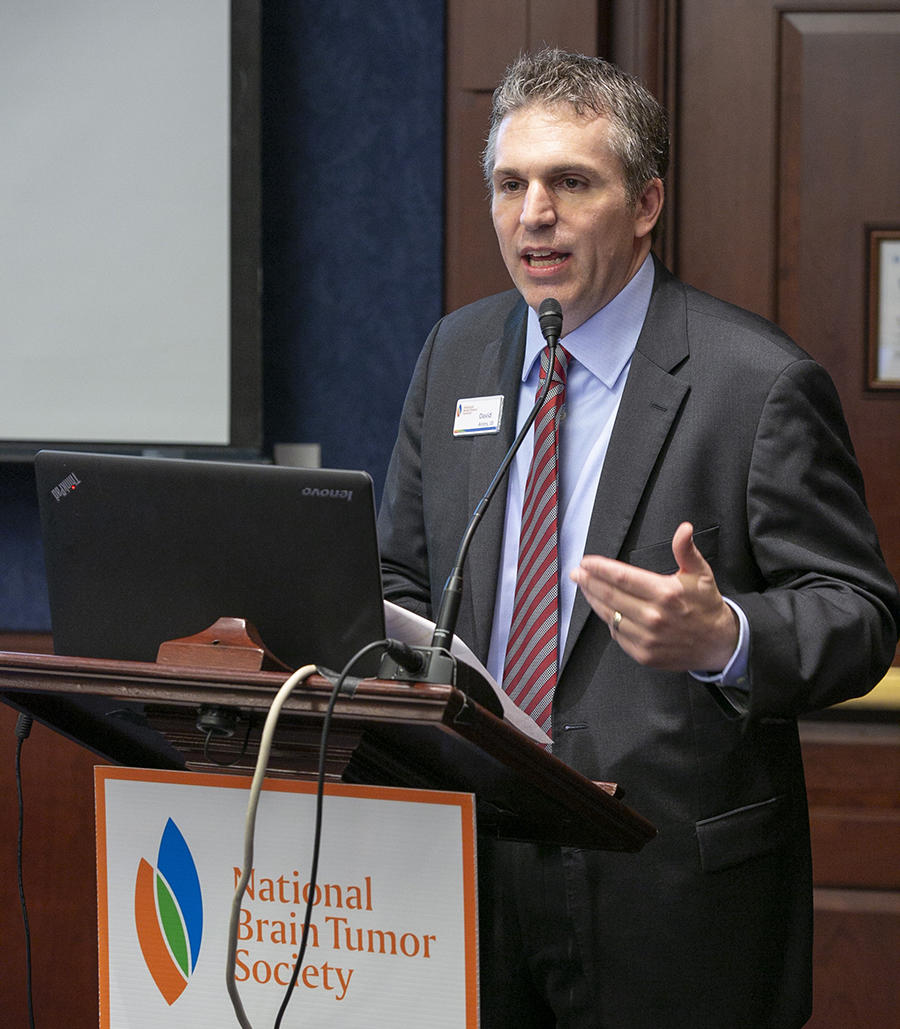National Non-Profit Unites and Empowers the Brain Tumor Community
, by Brittany Cordeiro, NCI-CONNECT Program Manager
Read how a national advocacy organization has helped unify and mobilize a community to advance care and knowledge for brain tumor patients and their families.
The National Brain Tumor Society (NBTS) has a history of collaboration and dedication—driving brain tumor research and treatments while helping patients. For nearly 30 years, it has empowered patients and families to take a more active role in their brain tumor care and funded critical research projects. It has also granted and awarded funds to brain tumor researchers all over the world to help new discoveries in hopes to find a cure for brain tumors.
NBTS officially formed in 2008 when two non-profits merged—the National Brain Tumor Foundation (NBTF) and the Brain Tumor Society (BTS). NBTF was founded in 1981 and had established programs and comprehensive resources and support services for the brain tumor community. BTS was founded in 1989 and was making grants for brain tumor research that were leading to breakthroughs in patient treatments.
Each of these foundations were started by people who were deeply affected by a brain tumor. By merging, they created one powerful and passionate voice.
“It is our plan to unite and mobilize the brain tumor community in new, creative ways that can change policies and innovate current standards of care, resources, and knowledge while ensuring that no one is alone when facing a brain tumor diagnosis,” says David Arons, chief executive officer of NBTS.
Arons joined NBTS in 2011 because of his personal experience. “I sought the opportunity to try and defeat cancer for taking my father’s life,” he says. He is inspired by the patients, families, volunteers, clinicians, researchers, and all those who choose to work to find a cure for brain tumors.
“Through innovative research, we have the opportunity to realize transformative medicines that could dramatically extend survival and quality of life for brain tumor patients,” Arons says.
Expansive Resources for Patients and Families
NBTS offers a variety of resources and information for people at all stages of a brain tumor diagnosis. These resources are available online or by phone at (617) 924-9997 or info@braintumor.org. These resources include:
- Key questions for patients to ask their doctors at braintumor.org/theexperience
- Information about types of treatment and clinical trials at all stages
- Progress and results concerning cutting-edge research
- Guidance and options for making the most informed next step decisions
NBTS also offers “concierge” support over the phone to help people find information. NBTS also has a tool on its website called the Clinical Trials Finder. It helps patients and care partners find brain tumor-centric clinical trials in their region or around the world.
“We offer informational support to help patients and families feel empowered when navigating their diagnosis, treatment, and beyond,” Arons says.
Another unique NBTS website feature is The Brain Tumor Experience. It takes visitors through the stages of living with a brain tumor—from symptoms and diagnosis through treatments and survival. Patients and families can find information and guidance about all the stages of their brain tumor experience. Included in this feature are important questions to ask your doctor at each stage, provided in a form that can be easily printed and used for note taking at appointments. Webinars and videos offer helpful treatment information for patients for easy viewing.
NBTS also has a blog and webpage called What’s New in Brain Tumor Progress to regularly provide the latest research and other pertinent updates to the brain tumor community. Another area of the website includes ways for people to participate in NBTS or help educate the community.
“We encourage people to engage with us in many ways. Volunteers can become an advocate or participate in community events, which are great ways for people to connect with each other,” Arons says.
We all know dealing with a brain tumor can be devastating and isolating. So, ultimately, through all our work, we seek to provide hope, connection, and support to patients and their families.
Collaboration to Expand Resources for Rare Brain Tumors
To expand resources, NBTS is partnering with NCI-CONNECT. “Brain tumor patients are an underserved population, so those with the rarest tumors have an even greater challenge,” Arons says.
These rare tumor populations are ultra small. NCI is filling a void by putting a spotlight on these diseases and helping bring together the brain tumor community to help.
NCI-CONNECT aims to partner with non-profit organizations like NBTS who share a common concern for improving the outcomes of patients with rare adult central nervous system (CNS) tumors through awareness and education.
“NCI-CONNECT represents an innovative opportunity to increase resources to advance research related to rare CNS tumors,” Arons says. “I hope our partnership with NCI-CONNECT and other brain tumor organizations, across all tumor types, reaches its goal to develop new approaches to treatment in the next five years.”
